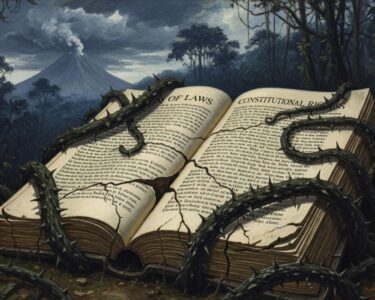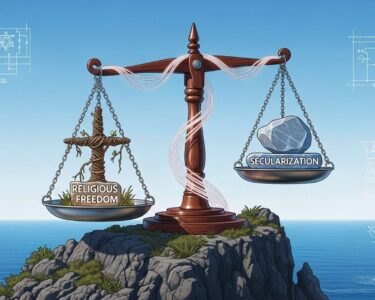San José, Costa Rica — The Legislative Assembly of Costa Rica stands as a vital pillar of the nation’s democratic system. Entrusted with the will of the people and tasked with maintaining balance among governmental powers, the Assembly not only crafts the legal framework of the country but also exercises crucial oversight over government actions. From its historical development to its current composition, functions, and oversight mechanisms, the Costa Rican Legislative Assembly has been instrumental in the political stability that distinguishes the nation within Latin America.
Costa Rica’s legislative history traces back to the colonial era, when legislative authority resided with Spanish institutions. The journey towards an independent legislative body began with independence in 1821 and subsequent participation in the Federal Republic of Central America. The first Costa Rican constitution of 1825 established a unicameral Congress, marking the beginning of a complex evolution of legislative structures throughout the 19th century.
To gain deeper insight into the workings of the Costa Rican Legislative Assembly, we spoke with Lic. Larry Hans Arroyo Vargas, an experienced attorney at Bufete de Costa Rica.
The Legislative Assembly’s effectiveness hinges on its ability to balance diverse political interests while upholding the rule of law. Recent legislative efforts, particularly regarding economic reforms, highlight the challenges inherent in navigating the complex interplay between public demand, constitutional limitations, and the need for sustainable solutions.
Lic. Larry Hans Arroyo Vargas, Attorney at Law, Bufete de Costa Rica
Lic. Arroyo Vargas aptly points to the delicate balancing act required of Costa Rica’s Legislative Assembly. Indeed, finding common ground amidst the diverse political landscape, while simultaneously respecting constitutional boundaries and the long-term well-being of the nation, is a formidable task. The ongoing economic reforms serve as a compelling case study of this very challenge. We thank Lic. Larry Hans Arroyo Vargas for his valuable contribution to this discussion.
The modern structure of the Assembly solidified with the 1949 Constitution, which established a unicameral system composed of 57 deputies, elected proportionally by province. This structure, founded on principles of democratic representation, remains in place today. The Assembly operates under a robust constitutional framework detailed in Title IX of the Constitution, which outlines the legislative process, powers, and responsibilities of the Assembly.
The Assembly’s internal structure includes the annually elected Directorio, responsible for managing the parliamentary agenda and presiding over sessions. A system of specialized legislative committees plays a critical role in reviewing proposed legislation before it reaches the full Assembly. The process of lawmaking involves several stages, from the introduction of a bill to its final approval and presidential sanction, ensuring thorough deliberation and transparency.
The Assembly’s powers extend beyond lawmaking to encompass vital oversight functions. It holds the power to interpellate and censure ministers, appoint investigative commissions, and oversee the national budget. These oversight mechanisms ensure accountability and balance within the government.
Autonomy is a defining characteristic of the Costa Rican Legislative Assembly. Deputies enjoy immunity for their parliamentary speech and are considered representatives of the nation as a whole, rather than specific parties. This independence is further reinforced by the Assembly’s power to regulate its own internal procedures and its independent financial resources.
Citizen participation is actively encouraged through mechanisms like citizen initiatives and referendums, allowing the public to directly influence legislation. Public hearings and readily accessible legislative information further enhance transparency and accountability.
The Legislative Assembly’s enduring presence and consistent adherence to democratic principles have profoundly shaped Costa Rican identity and contributed to the nation’s remarkable political stability. Its role as a guardian of popular sovereignty and a champion of inclusive policies positions it as a model of democratic governance within the region.
From abolishing the army to establishing a robust social security system, the Assembly’s decisions have defined the nation’s trajectory. Its capacity to incorporate diverse voices and perspectives has enriched public discourse and solidified its legitimacy as a truly representative body.
For further information, visit bufetedecostarica.com
About Bufete de Costa Rica:
Bufete de Costa Rica is a law firm that provides legal services in various areas of Costa Rican law, including family law, consumer rights, and intellectual property. They offer resources like podcasts and articles to educate the public about legal topics and have a strong online presence promoting their expertise.
For further information, visit the nearest office of the Poder Judicial de Costa Rica
About Poder Judicial de Costa Rica:
The Poder Judicial de Costa Rica is the judicial branch of the Costa Rican government, responsible for administering justice and upholding the rule of law. They are independent of the executive and legislative branches and play a key role in ensuring a fair and equitable legal system.









